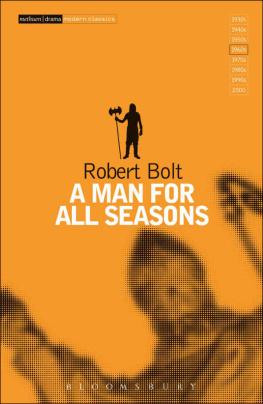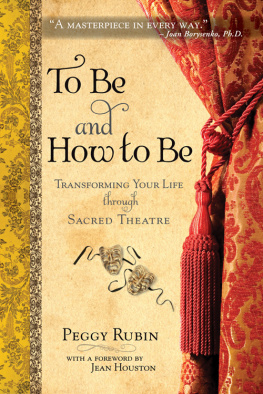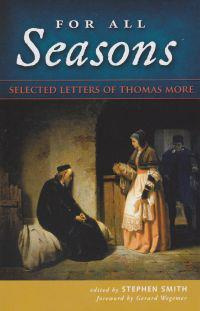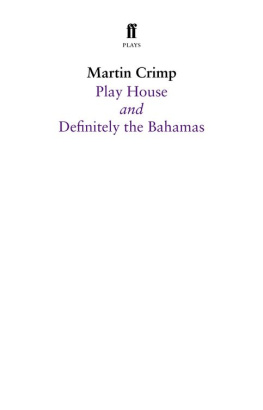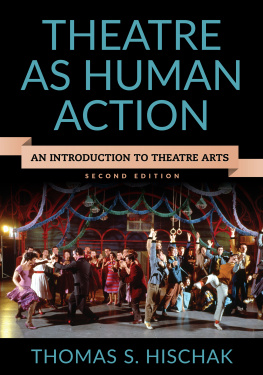Methuen Drama Modern Classics
The Methuen Drama Modern Plays series has always been at the forefront of modern playwriting and has reflected the most exciting developments in modern drama since 1959. To commemorate the fiftieth anniversary of Methuen Drama, the series was relaunched in 2009 as Methuen Drama Modern Classics, and continues to offer readers a choice selection of the best modern plays.
A Man for All Seasons
In this tense play of conscience, Thomas More, Lord Chancellor of England, enters into political and moral conflict with King Henry VIII when he refuses to support the Kings move to divorce his wife, Catherine of Aragon. Mores decision to endorse the divine right of the Pope over and above that of the King leads to his unwilling martyrdom and tragic downfall.
A Man for All Seasons is an enduring modern classic. It depicts the confrontation between Church and State, theology and politics, absolute power and individual freedom. Throughout the play Sir Thomas Mores eloquence and endurance, his purity, saintliness and tenacity in the face of ever-growing threats to his beliefs, family and life, earn him the status as one of modern dramas greatest tragic heroes.
It is a stark play, sparse in its narrative, sinewy in its writing, which confirms Mr Bolt as a genuine and solid playwright, a force in our awakening theatre Daily Mail
ROBERT BOLT
A Man for All Seasons
A Play of Sir Thomas More

Bloomsbury Methuen Drama
An imprint of Bloomsbury Publishing Plc
50 Bedford Square
London
WC1B 3DP
UK | 1385 Broadway
New York
NY 10018
USA |
www.bloomsbury.com
Bloomsbury is a registered trade mark of Bloomsbury Publishing Plc
First published by Heinemann 1960
Published in 1995 by Bloomsbury Methuen Drama
Reprinted 2006, 2007 (twice), 2008, 2009, 2010, 2012, 2013
Robert Bolt, 1960
Robert Bolt has asserted his right under the Copyright, Designs and
Patents Act, 1988, to be identified as author of this work.
All rights reserved. No part of this publication may be reproduced or transmitted
in any form or by any means, electronic or mechanical, including photocopying,
recording, or any information storage or retrieval system, without prior permission
in writing from the publishers.
No responsibility for loss caused to any individual or organization acting on or refraining
from action as a result of the material in this publication can be accepted by
Bloomsbury or the author.
All rights whatsoever in this play are strictly reserved and application for performance etc.
should be made before rehearsals by professionals and by amateurs to Casarotto Ramsay
and Associates Limited, National House, 60-66 Wardour Street, London W1V 3HP
No performance may be given unless a licence has been obtained.
No rights in incidental music or songs contained in the work are hereby granted and
performance rights for any performance/presentation whatsoever must be obtained
from the respective copyright owners.
Visit www.bloomsbury.com to find out more about our authors and their books
You will find extracts, author interviews, author events and you can sign up for
newsletters to be the first to hear about our latest releases and special offers.
British Library Cataloguing-in-Publication Data
A catalogue record for this book is available from the British Library.
eISBN-13: 978-1-4081-7633-7
Library of Congress Cataloging-in-Publication Data
A catalog record for this book is available from the Library of Congress.
More is a man of an angels wit and singular learning; I know not his fellow. For where is the man of that gentleness, lowliness, and affability? And as time requireth a man of marvellous mirth and pastimes; and sometimes of as sad gravity: a man for all seasons.
Robert Whittinton (1520)
He was the person of the greatest virtue these islands ever produced.
Jonathan Swift (1736)
Robert Bolt (1924-1995) was born at Sale, near Manchester, the son of a shopkeeper. He was educated at Manchester Grammar School and continuing at Manchester University he graduated in history in 1949. He then became a schoolmaster and also started writing radio plays for the BBC before achieving his first London theatrical success with Flowering Cherry (1957).
Bolts reputation rests largely on his historical dramas, all of which involve confrontations of differing values that have altered history. The best of these, A Man for All Seasons (produced at Londons Globe Theatre in 1960 but originally written in 1954 and intended for the radio) deals with Sir Thomas Mores struggle to keep his conscience inviolate while serving his sovereign, King Henry VIII, creating a dramatic clash between principle and power. In Vivat! Vivat Regina! (1970) Bolt returns to the Sixteenth Century, this time examining the confrontation between Elizabeth I and the vividly defiant Mary, Queen of Scots. State of Revolution (1977) depicts the struggle among Lenin, Trotsky, Stalin, and others to define and implement the Russian Revolution, showing the corrosive effects of dictatorial power on both people and leaders.
In addition to his stage plays, Bolt is equally known for his screenplays, notably Lawrence of Arabia (1962), Dr Zhivago (1966), the Academy Award-winning A Man for All Seasons (1967) which, like the stage productions, starred Paul Scofield, and Ryans Daughter (1969).
The bit of English History which is the background to this play is pretty well known. Henry VIII, who started with everything and squandered it all, who had the physical and mental fortitude to endure a lifetime of gratified greeds, the monstrous baby whom none dared gainsay, is one of the most popular figures in the whole procession. We recognise in him an archetype, one of the champions of our baser nature, and are in him vicariously indulged.
Against him stood the whole edifice of medieval religion, founded on piety, but by then as moneyed, elaborate, heaped high and inflexible as those abbey churches which Henry brought down with such a satisfying and disgraceful crash.
The collision came about like this: While yet a Prince, Henry did not expect to become a King, for he had an elder brother, Arthur. A marriage was made between this Arthur and a Spanish Princess, Catherine, but Arthur presently died. The Royal Houses of Spain and England wished to repair the connection, and the obvious way to do it was to marry the young widow to Henry, now heir in Arthurs place. But Spain and England were Christian Monarchies and Christian law forbade a man to marry his brothers widow.
To be a Christian was to be a Churchman and there was only one Church (though plagued with many heresies) and the Pope was its head. At the request of Christian Spain and Christian England the Pope dispensed with the Christian law forbidding a man to marry his brothers widow, and when in due course Prince Henry ascended the English throne as Henry VIII, Catherine was his Queen.
For some years the marriage was successful; they respected and liked one another, and Henry took his pleasures elsewhere but lightly. However, at length he wished to divorce her.
The motives for such a wish are presumably as confused, inaccessible and helpless in a King as any other man, but here are three which make sense: Catherine had grown increasingly plain and intensely religious; Henry had fallen in love with Anne Boleyn; the Spanish alliance had become unpopular. None of these absolutely necessitated a divorce but there was a fourth that did. Catherine had not been able to provide Henry with a male child and was now presumed barren. There was a daughter, but competent statesmen were unanimous that a Queen on the throne of England was unthinkable. Anne and Henry were confident that between them they could produce a son; but if that son was to be Henrys heir, Anne would have to be Henrys wife.
Next page
